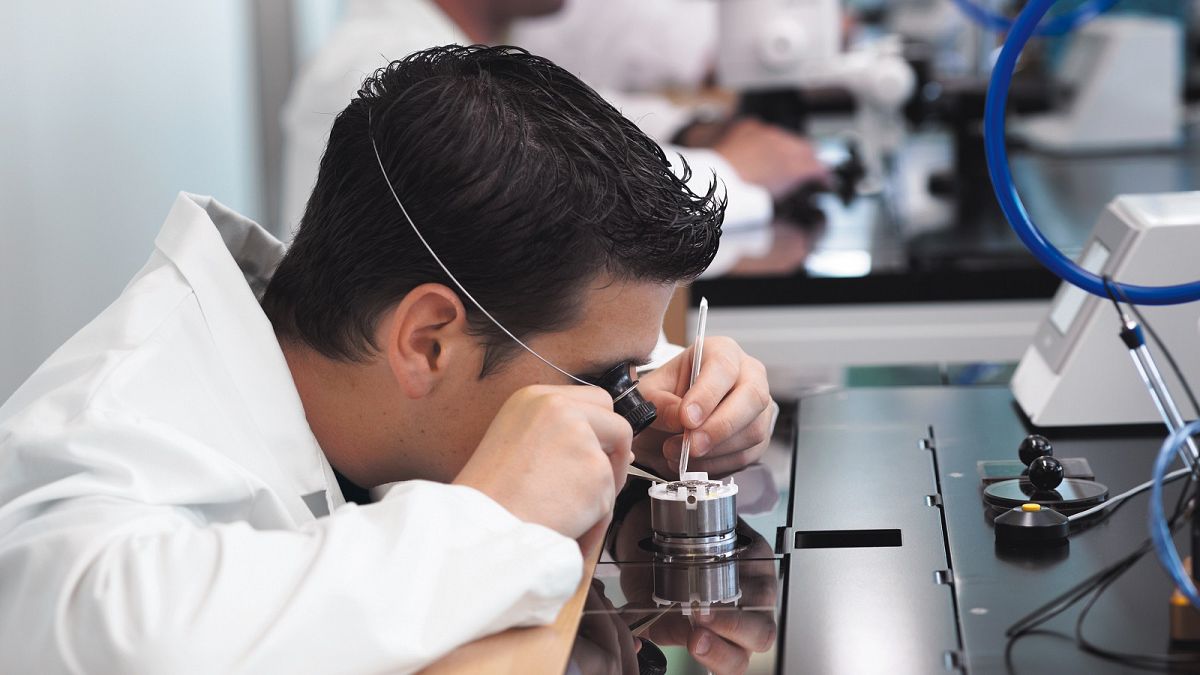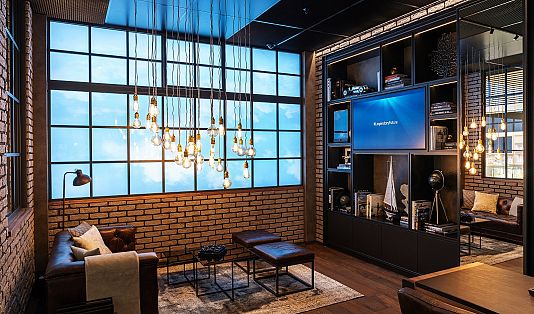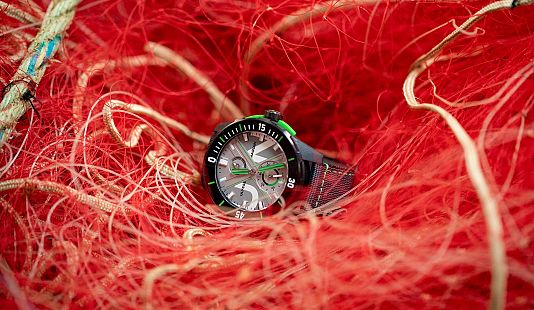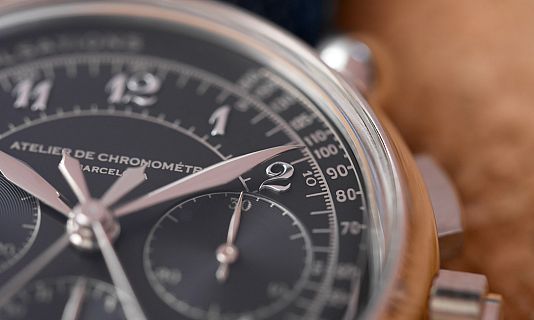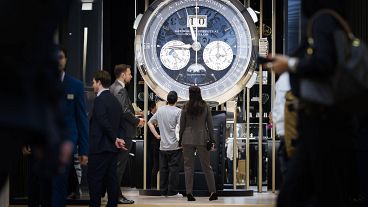Time to change: How the coronavirus pandemic altered the watchmaking industry
Coronavirus has changed how many industries operate, not least the world of horology. While some brands have been hit hard, others have learned quickly to adapt to these unprecedented times.
As 2020 dawned, there were few who could have predicted what the year had in store. The sense of hope and optimism that a new year brings was swiftly dashed by COVID-19 as it gripped the world, tragically leaving over one million people dead and many millions of jobs in paralysis.
Coronavirus has necessitated unprecedented change in many industries, not least the watchmaking industry. In order to survive, like many others, it has been forced to adapt in the face of the prevailing ill winds brought about by the pandemic or succumb completely. The winds, however, have battered some harder than others.
"The impact on the industry is not the same for everyone," Georges Kern, CEO of Breitling, told Euronews during the Grand Prix d'Horlogerie de Genève, an annual awards event that recognises the top watchmakers.
“Probably there will be less and less brands being successful, so the winner takes it all, or the winners will take it all," he said. "And when I look around at who is really making business, it’s even less brands than three or four years ago. You have the same phenomenon, unfortunately, in any industry".
In Switzerland alone, between 30 and 60 watchmakers are expected to go to the wall by the time the pandemic ends, with watch sales already plummeting by around 25 per cent this year.
According to Kern, the legacy of the pandemic will be a plethora of problems that will need to be overcome, not least among them a lack of diversity.
"You have a big globalisation problem of the supply chain but I think on the other side, you have an even more important globalisation of taste," he opined. "Taste is influenced by the brand, by the dynamism of the brand, by the budget invested in communicating your product".
Coronavirus has also refocused consumers' priorities and what they value most, including eco-friendliness and sustainability. "The values, I think, of the consumer changed during COVID," said Kern. "They started to change before COVID but this phenomenon has been amplified with COVID. I would say things that were ‘cool’ before covid are somehow not ‘cool’ any longer".
Breitling has been able to weather the worst of the economic hit because it embraced inclusivity, Kern says, as well as casual luxury, something which has come into its own with the rise of remote working. It is something that is evidenced in the brand's shift to concept boutiques which have moved away from ubiquitous thick carpets and ostentatious decor to informal settings with pool tables and barista coffee, for example.
As with many brands during the first peak of the virus earlier this year, the pandemic forced the closure of Breitling's workshops and boutiques, and with it a shift to e-commerce. But, as Kern is at pains to explain, the digitalisation of the industry should not just be about brands switching to doing business online.
At Breitling, the use of digital appointment tools, for instance, has helped to cover the drop in footfall and spontaneous purchases in its boutiques. More compatible with social distancing and safety precautions, in-person appointments also translate to higher sales as those booking timeslots are customers with purchasing a watch in mind.
Online product launches
Beyond e-sales, digital tools have become a vital lifeline for many brands as they weather the tempest. Ulysse Nardin, for instance, has been creative in its use of digital platforms to connect with consumers, including the online launch of a new concept timepiece.
"We have been organising video conferences, press conferences on Zoom," Françoise Bezzola, the brand's Chief Marketing Officer (CMO), told Euronews. "For example, just last week we launched a new concept which is called the Diver NET and we did it through a huge Zoom where we had people talking about the concept".
The online unveiling of the Diver NET, whose casing is made entirely from upcycled plastics from fishing nets recovered from the ocean floor, on a Zoom meeting would ordinarily be an unorthodox approach. The pandemic, though, is anything but business as usual, putting a temporary hold on habitual practices and forcing the cancellation of most industry events, including the annual Watches and Wonders show in Geneva.
"The whole industry was having, once a year, a big rendezvous for all the retainers, all the media - and this just disappeared," said Bezzola. "So, we had to find new ways to contact our retainers, the media, and all the people, and this was the major change".
The cancellation of the Watches and Wonders show meant the brand was forced to change tack, which, in light of the pandemic, used investment ringfenced for the event to fund a largescale digital campaign to increase the visibility of the Blast watch launched in August.
Ulysse Nardin was also quick to pivot to e-commerce with the opening of its collections online to the US and UK markets in June, precipitated in part by a collapse in one of the industry's core markets - the tourist trade. "Travel retail was really, really important," said Bezzola. "Now there is no travel anymore so there is no retail anymore. We had to change all our efforts towards domestic consumption instead of travel retail".
Small but mighty
Limitations on travel are certainly proving to be an obstacle for smaller watchmakers, like Barcelona-based Atelier de Chronométrie. Founded in 2015, the brand is still in its infancy and heavily reliant on overseas travel to connect with customers. Creating bespoke timepieces for clients on spec, "one-to-one marketing" has been at the core of the company's success in the five short years since it opened its doors.
"We are isolated here. We used to travel a lot," Montse Gimeno, one of the co-founders of Atelier de Chronométrie and its communications director. "We like to meet customers, or potential customers, to meet them directly. At this point, it is bad for us. But we're using more technology and social media to try to compensate this lack".
While the pandemic hit production at larger, more established companies like Breitling and Ulysse Nardin with the closure of their workshops, the manufacturing process for Atelier de Chronométrie has largely remained untouched thanks to its small team and the small-scale artisans it works with.
While size has sounded the death knell for many watch brands already, the fact that it is a small operation has in many ways been its saving grace. "It's more easy to manage the situation than I imagine a factory or a big manufacturer with a lot of people working. In this case, being small is good. It's at least one advantage".
So, has the impact of the pandemic meant a reevaluating of long-term strategies? For the time being at least, most watchmakers are maintaining their course through the rough seas hampering the industry, albeit with minor adjustments. "I think a good strategy is a strategy that is lasting. When you change your strategy every five minutes, it’s not a strategy, it’s a tactic," said Bezzola.
"I’m pretty confident that where we [Ulysse Nardin] are going in terms of products, marketing and image is the right direction, and I don’t think that because of the pandemic, we should change anything".


